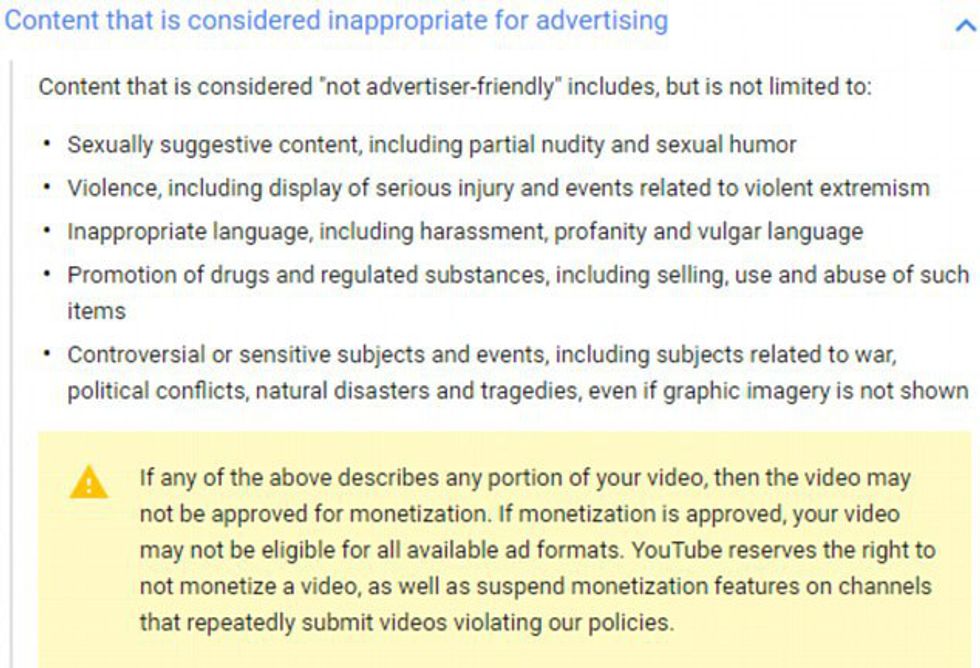Is YouTube destroying Its Platform?
In December, it will be my 5 year anniversary of being on YouTube as a creator. Throughout these past 5 years, I’ve learned something two things about YouTube:
1. It is constantly changing.
2. I’ll probably continue to complain about some of those changes.
Of course, many of the changes that have occurred have been on an aesthetic level. Different layouts, different plugins and features. I’ve enjoyed some of these and then there’s been others I didn’t enjoy so much. However, these are not the changes that fully affect me as a creator.
It’s the backend of YouTube, the part we can’t actually see. This is the coding, the guidelines, etc. And some of these changes may be destroying YouTube from the inside out.
WTFU?
Where’s the Fair Use? Or WTFU? Has been an extremely big issue in the YouTube community over the past few years. Picture this: You create a video reviewing the newest Hollywood blockbuster. You use images from the film, maybe a couple of short scenes, but the whole video is revolved around your opinions about the film. You upload it, hope to receive some kind of monetary value from advertisement revenue and… your video gets a copyright strike.
What does this mean? This means you can no longer receive any kind of money from this video. Even if it ends up with one million views.
Don’t get me wrong, the copyright system is important. It’s in place to ensure that full TV shows or movies aren’t uploaded without the creator’s knowledge. It’s also to make sure that any music uploaded is not monetized by anyone else, except for the musician that created the music. It’s a great system and is important in keeping YouTube alive; however, it is exceptionally flawed.
YouTubers, like myself, that create review videos or Let’s Plays (video game footage with educational or comedic commentary) receive copyright claims, meaning that they cannot make money for the content that they create.
Of course, this system has been discussed many times over the past few years and it definitely has affected me, but the newest system in regards to monetization, has people wondering whether or not YouTube will be able to sustain itself.
Advertiser Friendly Content
In 2013, a policy was created on YouTube to ensure that inappropriate videos that were uploaded to YouTube were not able to gain revenue from ads. Recently this policy has begun notifying creators when their video violates these guidelines. This sounds reasonable. Advertisers do not want their ads on videos that are deemed inappropriate by societal standards.
But what exactly is inappropriate to YouTube’s advertiser?
The above is the exact guidelines that YouTube provides in their content guidelines. As you can see, most of this is reasonable. Selling drugs on YouTube? No YouTube money for you. Pornography on YouTube? No YouTube money for you. What’s driving creators insane, is the following:
- Profanity and vulgar language
- Controversial or sensitive subjects and events
Comedians on YouTube have begun to find that their videos are losing monetization because of profanity and let’s be honest – that’s ridiculous. Especially in a day where most of the primetime TV shows incorporate some sort of profanity in its regular programming. On late night TV, popular comedians routinely use profanity in their shows, so this really confuses the YouTube community.
As far as controversial subjects goes. This is essentially the news in a nutshell. Every video that discusses controversial topics including war, suicide, death, etc., are at risk of losing revenue.
This is the most obscure guideline and it has people wondering: Is YouTube destroying its own platform?









 The minimum wage is not a living wage.
StableDiffusion
The minimum wage is not a living wage.
StableDiffusion
 influential nations
StableDiffusion
influential nations
StableDiffusion












